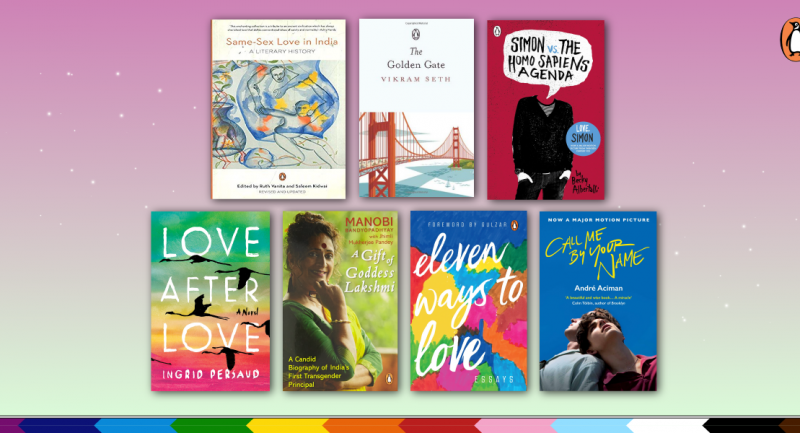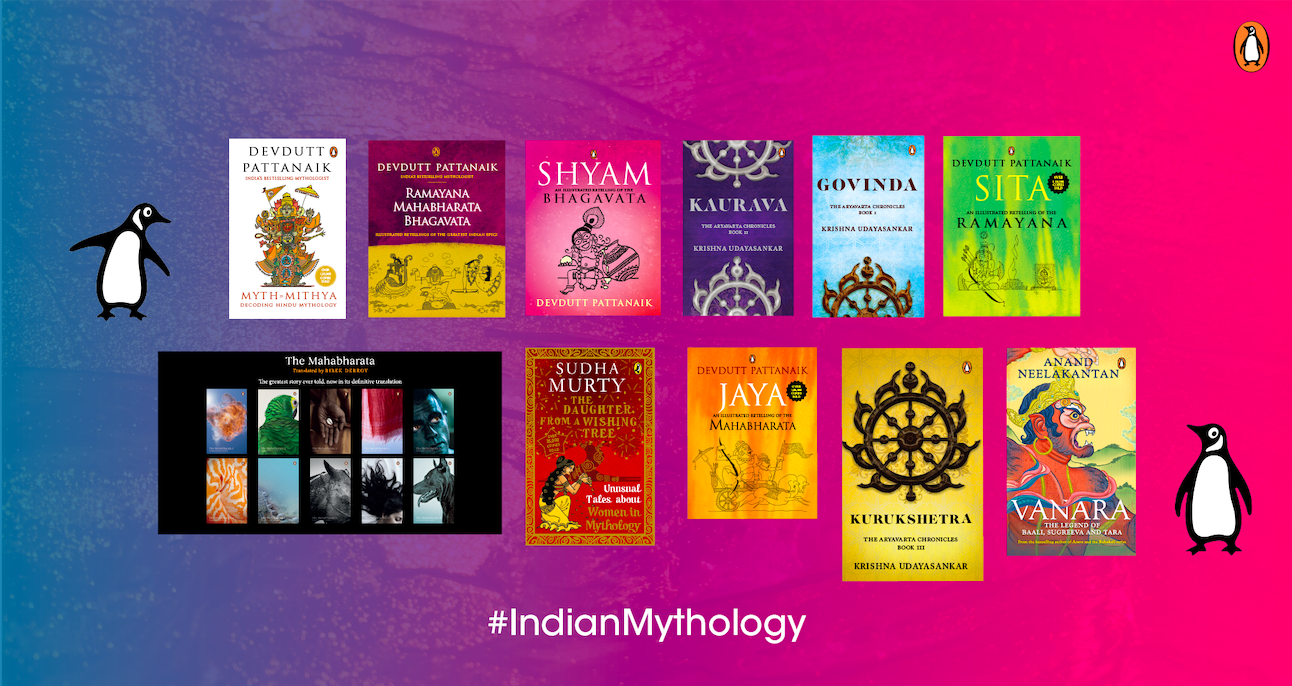
This month, we have been revisiting tales as old as time from the immersive world of Indian mythology and our favourite epics!
Scroll down to have a look at our reading list and join us on this journey!
The Aryavarta Chronicles
Govinda: The Aryavarta Chronicles Book 1
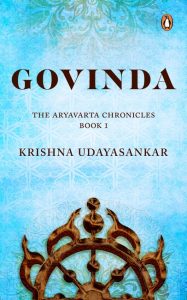
Govinda
Krishna Udayasankar
For generations, the Firstborn dynasty of scholar-sages, descendants of Vasishta Varuni and protectors of the Divine Order on earth, has dominated here. For just as long, the Angirasa family of Firewrights, weapon-makers to the kings and master inventors, has defied them. In the aftermath of the centuries-long conflict between the two orders, the once-united empire of Aryavarta lies splintered, a shadow of its former glorious self.
Kaurava: The Aryavarta Chronicles Book 2
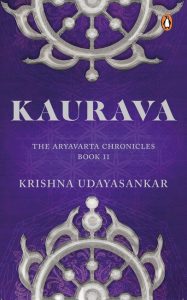
Kaurava
Krishna Udayasankar
Emperor Dharma Yudhisthir of the Kauravas and Empress Panchali Draupadi rule over a unified Aryavarta, an empire built for them by Govinda Shauri with the blessings of the Firstborn and by the might of those whom everyone believes long gone – the Firewrights.
Now the Firewrights rise from the ashes of the past, divided as before in purpose and allegiance, and no one,
His every dream shattered, Govinda is left a broken man. The only way he can protect Aryavarta and the woman in whose trusted hands he had left it is by playing a dangerous game. But can he bring himself to reveal the terrible secrets that the Vyasa has guarded all his life – secrets that may well destroy the Firstborn, and the Firewrights with them?
Kurukshetra: The Aryavarta Chronicles Book 3
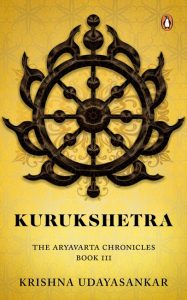
Kurukshetra
Krishna Udayasankar
The empire that was Aryavarta fades under the shadow of doom. As the bitter struggle to gain control of the divided kingdom ensues, both Krishna Dwaipayana Vyasa of the Firstborn and the Secret Keeper of the Firewrights can only watch as their own blood, their kin, savage and kill on the fields of Kurukshetra. Restraint and reason have deserted the rulers who once protected the land and they manipulate, scheme and kill with abandon – for victory is all that matters.
Reforging the forsaken realm in the fire of his apocalyptic wrath, Govinda prepares to destroy everything he loves and make the ultimate sacrifice for the sake of one last hope: that humanity will rise.
**
Vanara: The Legend of Baali, Sugreeva and Tara
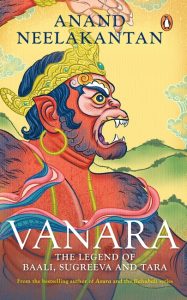
Vanara
Anand Neelakantan
Baali and Sugreeva of the Vana Nara tribe were orphan brothers who were born in abject poverty and grew up as slaves like most of their fellow tribesmen. They were often mocked as the vanaras, the monkey men. Sandwiched between the never-ending war between the Deva tribes in the north and the Asura tribes in the south, the Vana Naras seemed to have lost all hope. But Baali was determined not to die a slave. Aided by his beloved brother, Sugreeva, Baali built a country for his people.
The love triangle between Baali, Tara and Sugreeva is arguably the world’s first.
Vanara is a classic tale of love, lust and betrayal. Shakespearean in its tragic depth and epic in its sweep, Vanara gives voice to the greatest warrior in the Ramayana-Baali.
**
The Mahabharata (Box Set)
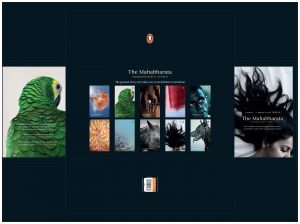
The Mahabharata (Box Set)
Bibek Debroy
The greatest Indian story ever told of a war between two factions of a family, The Mahabharata has continued to sway the imagination of its readers over the past centuries.
While the dispute over land and kingdom between the warring cousins-the Pandavas and the Kauravas-forms the chief narrative, the primary concern of The Mahabharata is about the conflict of dharma. These conflicts are immense and various, singular and commonplace.
The complete and unabridged Sanskrit classic, now masterfully and accessibly rendered for contemporary readers by Bibek Debroy.
**
Ramayana, Mahabharata, Bhagvata: Illustrated Retellings of the Greatest Indian Epics Box Set
Jaya: An Illustrated Retelling of the Mahabharata

Jaya
Devdutt Pattanaik
High above the sky stands Swarga, paradise, abode of the gods. Still above is Vaikuntha, heaven, abode of God.
The doorkeepers of Vaikuntha are the twins, Jaya and Vijaya, both whose names mean ‘victory’. One keeps you in Swarga; the other raises you into Vaikuntha. In Vaikuntha there is bliss forever, in Swarga there is pleasure for only as long as you deserve.
What is the difference between Jaya and Vijaya? Solve this puzzle and you will solve the mystery of the Mahabharata.
Sita: An Illustrated Retelling of the Ramayana
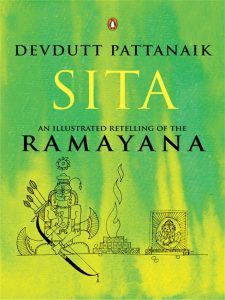
Sita
Devdutt Pattanaik
It is significant that the only character in Hindu mythology, a king at that, to be given the title of ekam-patni-vrata, devoted to a single wife, is associated with the most unjust act of abandoning her in the forest to protect family reputation.
This book approaches Ram by speculating on Sita—her childhood with her father, Janak, who hosted sages mentioned in the Upanishads; her stay in the forest with her husband who had to be a celibate ascetic while she was in the prime of her youth; her interactions with the women of Lanka, recipes she exchanged, emotions they shared; her connection with the earth, her mother; her role as the Goddess, the untamed Kali as well as the demure Gauri, in transforming the stoic prince of Ayodhya into God.
Shyam: An Illustrated Retelling of the Bhagavata
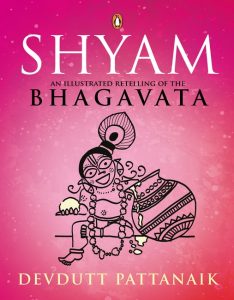
Shyam
Devdutt Pattanaik
The Bhagavata is the story of Krishna, known as Shyam to those who find beauty, wisdom and love in his dark complexion. It is the third great Hindu epic after the Mahabharata and the Ramayana.
This book seamlessly weaves the story from Krishna’s birth to his death, or rather from his descent to the butter-smeared world of happy women to his ascent from the blood-soaked world of angry men.
**
Myth = Mithya
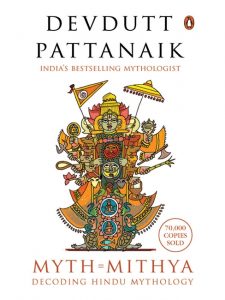
Myth = Mithya
Devdutt Pattanaik
In this groundbreaking book Dr Devdutt Pattanaik; one of India’s most popular mythologists; seeks an answer to these apparent paradoxes and unravels an inherited truth about life and death; nature and culture; perfection and possibility. He retells sacred Hindu stories and decodes Hindu symbols and rituals; using a unique style of commentary; illustrations and diagrams. We discover why the villainous Kauravas went to heaven and the virtuous Pandavas (all except Yudhishtira) were sent to hell; why Rama despite abandoning the innocent Sita remains the model king; why the blood-drinking Kali is another form of the milk-giving Gauri; and why Shiva wrenched off the fifth head of Brahma.
—








